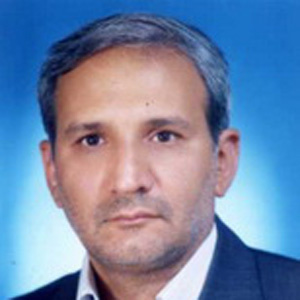To Iran, An Imperturbable Russia is An Antagonistic Russia
START II will disengage Moscow from Tehran
By Mahmoud Shouri, Russian affairs analyst

Prague, once a battleground of Cold War ideologies, was, appropriately, the scene of a landmark agreement reached last week. After a year of tough negotiations, U.S. President Barack Obama and his Russian counterpart, Dmitri Medvedev, finally signed the START (Strategic Arms Reduction Treaty) II on Thursday.
A few hours after the signing of the treaty, the U.S. Department of State released a document on the country’s new nuclear strategy (“Nuclear Posture Review, or NPR”) on its website, which outlined security guarantees from U.S. for its potential allies, including Russia.
A complex set of objectives and interests has prompted Russia and the US to pursue the reduction of nuclear arms, and the START II treaty is in fact all about mutual benefits. Both countries have long reached the summit of nuclear technology—they have produced as many nuclear weapons and sophisticated delivery systems as needed for any doomsday scenario—a “nuclear ceiling” by any definition . Now they recognize that it is time for them to reduce the number of their nuclear arms and concentrate on a real and immediate danger—how to stop other players from acquiring or proliferating such weapons. Mutual benefit on a common ground may also encourage Moscow and Washington to get closer on other issues of difference, including Iran.
With Moscow now feeling more confident and with security guarantees it had always demanded from Washington partially gained, new implications have arisen for cooperation on Iran’s disputed nuclear program (in all likelihood a secondary motive for both the U.S. and Russia to sign the START II treaty). Sooner or later, Moscow will begin to modify its ties with Tehran.
U.S.-Russia relations are now switching to a friendship track. Mutual understanding is on rise, while the political dynamics inside Russia give hope to its people that once again their country will turn into an influential international actor—an acknowledged powerful member of the international community. Washington’s policy is to now engage Moscow in diplomatic games, in any event more so than before. It has also toned down implicit threats against Russian influence in it’s proclaimed sphere, essentially Central Asia and the Caucasus (Kyrgyzstan, Georgia, Abkhazia), thereby giving Moscow a better sense of security. The feeling of confidence lubricates the friendship track, paving the way for Russia’s gradual disengagement from Iran.
Russia and the U.S. had in the past always tried to turn Iran—particularly its nuclear program—into a highly valuable bargaining chip in the tough diplomatic game they played with each other. But Iran is no longer an abstract problem—it is now turning into a real challenge for Moscow and Washington. As Iran inches closer to achieving what are deemed taboo nuclear technologies, the Russians may even feel their hearts skip a beat or two.
Hypothetcially, if Iran one day announces it has joined the exclusive nuclear club by producing nuclear weapons, the strongest opposition to it and its arms program will be not from the Western coast of the Atlantic, but from inside the Kremlin. And Iran must know that as its nuclear technology advances, Russia will become a tougher and tougher neighbor.
A few hours after the signing of the treaty, the U.S. Department of State released a document on the country’s new nuclear strategy (“Nuclear Posture Review, or NPR”) on its website, which outlined security guarantees from U.S. for its potential allies, including Russia.
A complex set of objectives and interests has prompted Russia and the US to pursue the reduction of nuclear arms, and the START II treaty is in fact all about mutual benefits. Both countries have long reached the summit of nuclear technology—they have produced as many nuclear weapons and sophisticated delivery systems as needed for any doomsday scenario—a “nuclear ceiling” by any definition . Now they recognize that it is time for them to reduce the number of their nuclear arms and concentrate on a real and immediate danger—how to stop other players from acquiring or proliferating such weapons. Mutual benefit on a common ground may also encourage Moscow and Washington to get closer on other issues of difference, including Iran.
With Moscow now feeling more confident and with security guarantees it had always demanded from Washington partially gained, new implications have arisen for cooperation on Iran’s disputed nuclear program (in all likelihood a secondary motive for both the U.S. and Russia to sign the START II treaty). Sooner or later, Moscow will begin to modify its ties with Tehran.
U.S.-Russia relations are now switching to a friendship track. Mutual understanding is on rise, while the political dynamics inside Russia give hope to its people that once again their country will turn into an influential international actor—an acknowledged powerful member of the international community. Washington’s policy is to now engage Moscow in diplomatic games, in any event more so than before. It has also toned down implicit threats against Russian influence in it’s proclaimed sphere, essentially Central Asia and the Caucasus (Kyrgyzstan, Georgia, Abkhazia), thereby giving Moscow a better sense of security. The feeling of confidence lubricates the friendship track, paving the way for Russia’s gradual disengagement from Iran.
Russia and the U.S. had in the past always tried to turn Iran—particularly its nuclear program—into a highly valuable bargaining chip in the tough diplomatic game they played with each other. But Iran is no longer an abstract problem—it is now turning into a real challenge for Moscow and Washington. As Iran inches closer to achieving what are deemed taboo nuclear technologies, the Russians may even feel their hearts skip a beat or two.
Hypothetcially, if Iran one day announces it has joined the exclusive nuclear club by producing nuclear weapons, the strongest opposition to it and its arms program will be not from the Western coast of the Atlantic, but from inside the Kremlin. And Iran must know that as its nuclear technology advances, Russia will become a tougher and tougher neighbor.

